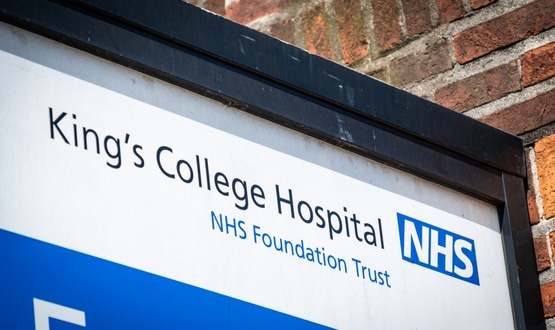Critical IT systems on Leeds risk register
- 1 December 2016

A sizeable chunk of a major teaching hospital’s critical IT systems are at significant risk of failing without warning, according to its corporate risk register.
Leeds Teaching Hospitals NHS Trust’s November board papers put the threat of “unserviceable critical IT infrastructure and resilience” on the penultimate “significant risk” rank of 20.
A report says 30 out of the 300 most critical IT systems and access to archived medical information “may fail without warning, caused by critical systems being held on old platforms and insufficient data storage and computers.”
It adds: “This may result in errors or delays in diagnoses, a need to repeat tests, invoice failures, reporting failures, and/or unsatisfactory patient experience.”
A spokesperson for the trust said the specific systems could not be identified for “commercial reasons”, but confirmed that IT infrastructure issues have been on the risk register for at least two years.
The report says its long term plan is to review its capital requirements to produce a strategic outline case to support IT infrastructure by the end of March 2017.
The potential problems were realised when Leeds Teaching’s pathology system failed in September. This led to major delays in processing test results, including routine blood tests, and the postponement of 147 non-urgent procedures.
Two months on from the hardware failure, some services are relying on paper and phones. As of 14 November, there were still eight patients out of the 322 affected who had not been rescheduled.
The results of an external review into the cause of the failure have not been published yet, but the spokesperson confirmed that the “recent pathology issues were linked to our IT infrastructure”.
The September board papers note that IT critical systems were listed in the trust’s top ten risks when the Care Quality Commission carried out an inspection in May.
The CQC report, which rated the trust “good”, said there had been an “under investment in the clinical IT systems” and that it would cost about £40 million for the trust to go paperless and modernise its IT infrastructure.
The risk register says mitigating measures include migrating 90% of critical IT systems onto a new platform and optimising the power, performance and stability of the old IT platform.
Further mitigation measures include controlling the computer rooms’ environment, restricting access to the technology, and ensuring sufficient back-up.
Leeds Teaching operates a best of breed IT strategy, and uses PPM+ for its electronic patient record.
According to Digital Health intelligence it uses CSC’s Clinicom for its patient administration system and HSS’s CRIS for its radiology information system.
The trust is one of the largest teaching trusts in Europe and serves a population of 780,000 in the city, and 5.4 million from the surrounding areas. It has a budget of £1 billion.
Digital Health Intelligence: holds information on the clinical systems installed at trusts across the UK and uses this to calculate a Clinical Digital Maturity Index score. Leeds Teaching Hospitals NHS Trust ranks 117 with a score of 62. (requires log-in).




